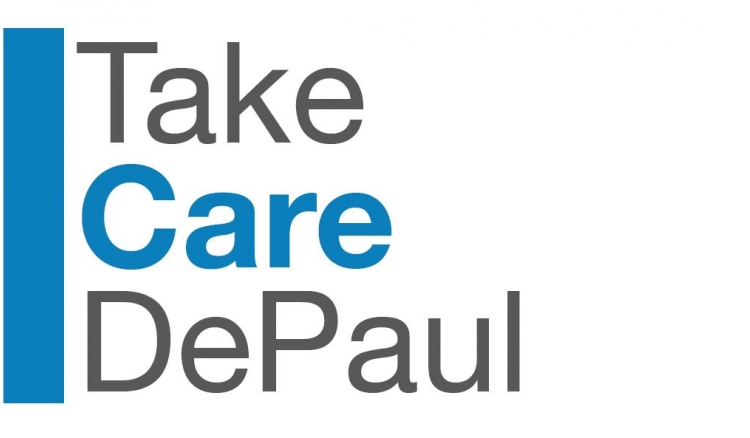 In the spring of 2018, the university’s Student Care Team, including professional staff members from Health Promotion and Wellness, University Counseling Services, Public Safety, Residential Education, the Center for Students with Disabilities and the Dean of Students Office, began to consider establishing an opioid overdose reversal program at DePaul University. SCT members were concerned about DePaul community members in the context of the national opioid overdose public health crisis, and they had been hearing more among their professional communities about the impact of the crisis on college campuses.
In the spring of 2018, the university’s Student Care Team, including professional staff members from Health Promotion and Wellness, University Counseling Services, Public Safety, Residential Education, the Center for Students with Disabilities and the Dean of Students Office, began to consider establishing an opioid overdose reversal program at DePaul University. SCT members were concerned about DePaul community members in the context of the national opioid overdose public health crisis, and they had been hearing more among their professional communities about the impact of the crisis on college campuses.
Concurrent to the SCT’s efforts, the student organization, Students for Sensible Drug Policy, began to advocate for opioid-antagonist drugs on campus, and approached the Student Government Association in early fall 2018. It was then that the seeds of the recently launched Opioid Overdose Prevention and Response Program at DePaul began to take root.
DePaul has had large and comprehensive prevention, education and response programs around alcohol and drugs for many years, including Health Promotion and Wellness’ hiring an alcohol and substance abuse prevention specialist and establishing a recovery community, launched in fall 2017. The Opioid Overdose Prevention and Response Program is DePaul’s most recent effort. Launched in January 2019, the program is the answer to the question, “What more must be done?”
The program consists of 32 kits in 29 locations across both campuses, with each kit containing four doses of Narcan, a naloxone nasal spray that can counteract opioid overdose. The kits are located in most defibrillators (AEDs) on campus, as well as in Public Safety patrol cars and the front desks of residence halls.
“As our nation continues to address the opiate epidemic that is affecting so many individuals across the country, DePaul aims to support our own community in every possible way,” says Shannon Suffoletto, director of the Office of Health Promotion and Wellness. “Making the kits available, and training almost 100 campus first responders to administer Narcan, allows our community to ‘Take Care of Yourself. Take Care of each Other. Take Care DePaul.”
During December 2018 addiction specialists from community partners, trained Public Safety officers, select staff in Housing Services and Student Centers, and professional staff and Residence Directors in Residential Education to administer Narcan. Health Promotion and Wellness will soon offer a comprehensive training aimed at educating the DePaul community at large. Anyone who is interested in learning more about this epidemic, addiction, recovery and how to administer Narcan, will be invited to attend a training, which will occur in Winter and Spring Quarters.
“Although Narcan is easy to administer and will not harm a person who is not experiencing an overdose, we want to ensure our community is provided with education that includes information about addiction, mental health, recovery and related stigmas attached, as well as how to administer the Narcan,” Suffoletto says.
In addition to the new program, a task force consisting of student organization, faculty and staff members is forming to continue to address the topic of substance use and misuse on campus.
“The Substance Misuse Prevention, Education and Response Taskforce will gather and share holistic best practices for the DePaul community,” Suffoletto shares. “This includes education and awareness around harm reduction, substance misuse, addiction and recovery, as a way to empower our community to truly Take Care DePaul.”
For questions about the Opioid Overdose Prevention and Response Program, contact
Shannon Suffoletto of Health Promotion and Wellness at 773.325.7129.